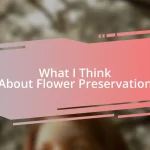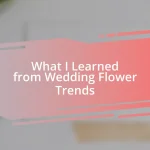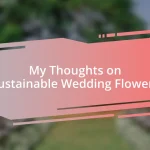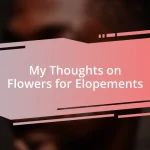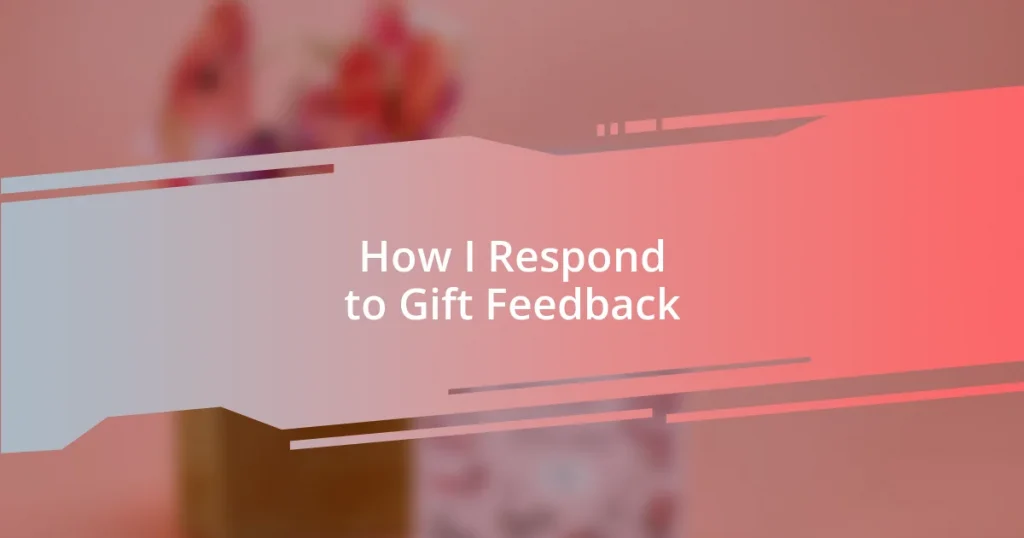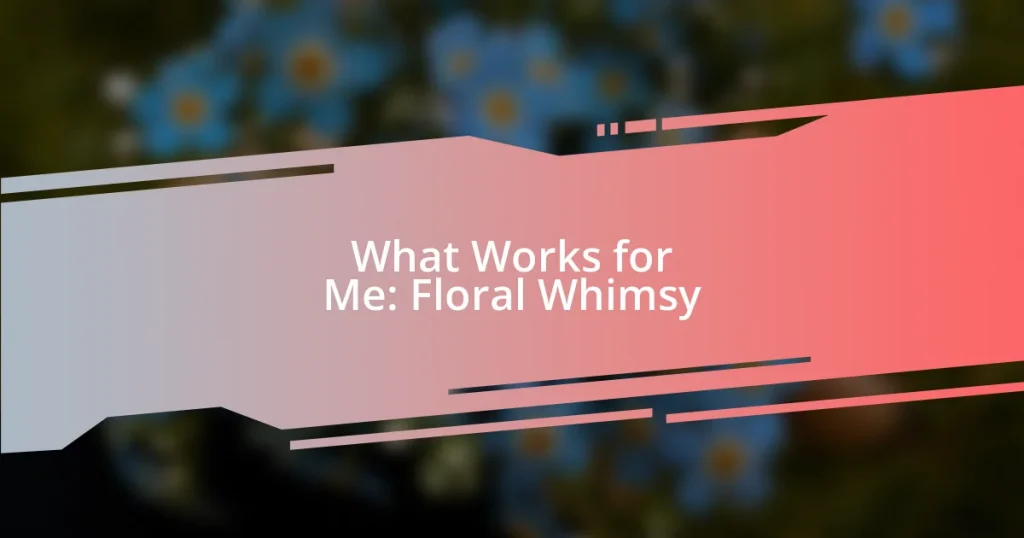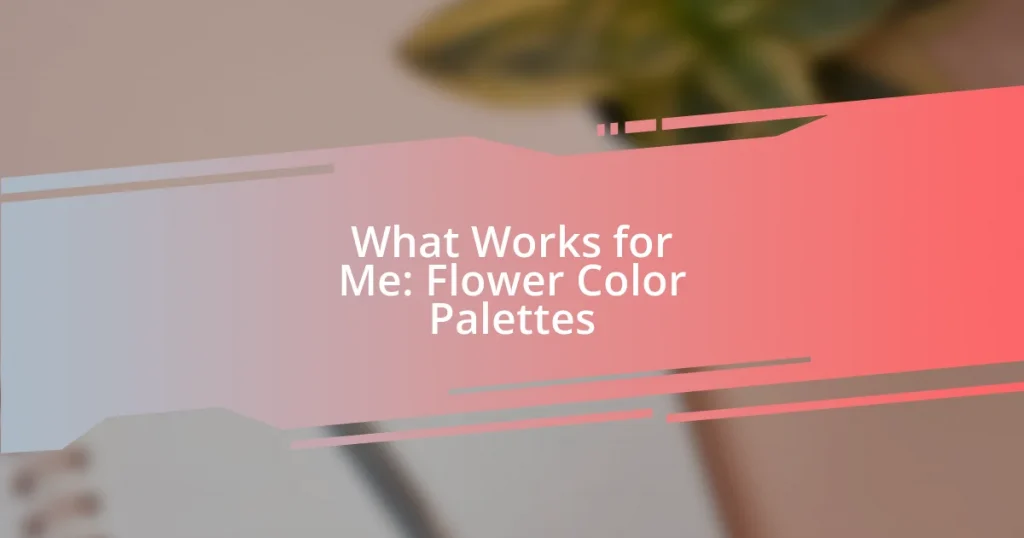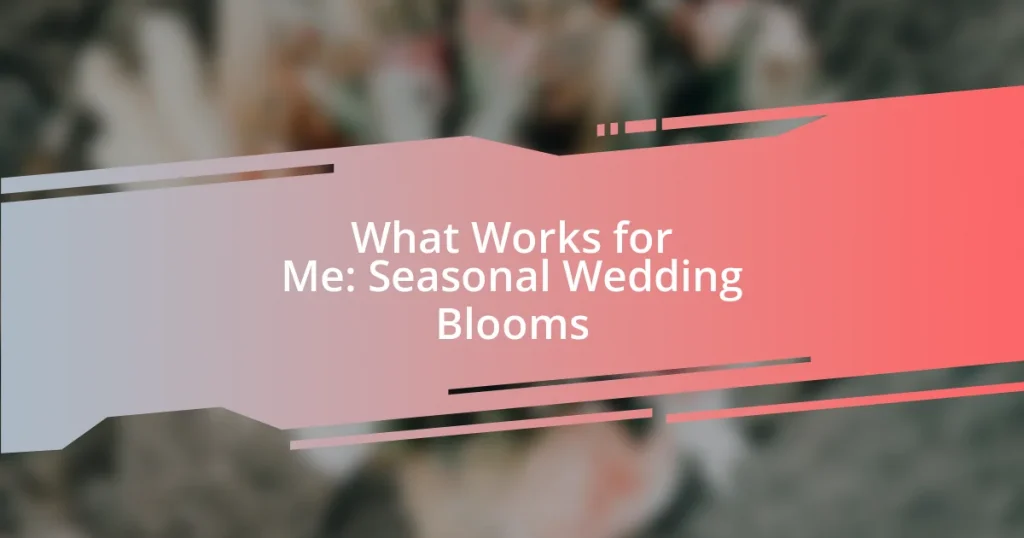Key takeaways:
- Feedback is essential for growth and strengthening relationships; it helps refine our understanding of others’ preferences.
- Differentiating between constructive and destructive feedback is crucial; constructive feedback encourages growth, while destructive feedback can lead to defensiveness.
- Acknowledging feedback effectively, through appreciation and open dialogue, fosters deeper connections and enhances future interactions.
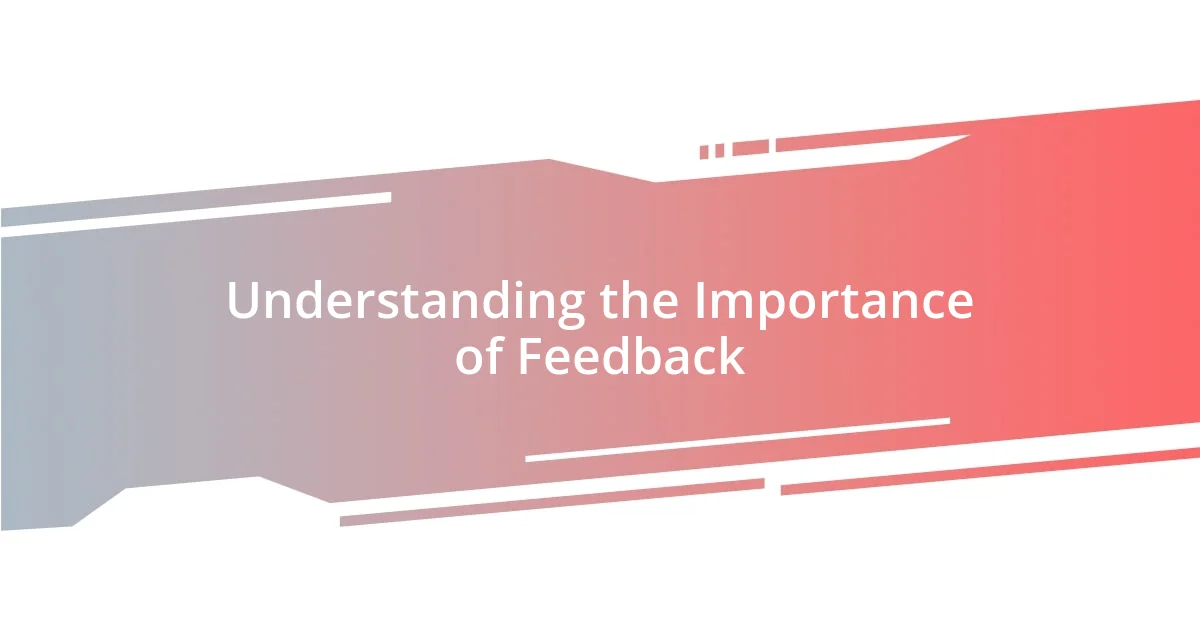
Understanding the Importance of Feedback
Feedback is an invaluable tool for growth, both personally and professionally. I remember the first time I received constructive criticism on a gift I chose for a friend. Initially, I felt defensive, but then I realized the insights offered helped me understand their preferences better. Isn’t it fascinating how a single piece of feedback can open our eyes to different perspectives?
Moreover, feedback fosters stronger relationships. When I openly encouraged my partner to share their thoughts on a gift I gave them, I was surprised by the depth of our conversation that followed. It not only strengthened our bond but also made me more thoughtful in my future gift-giving endeavors. Have you ever considered how sharing those moments of reflection could enhance your connections with others?
Lastly, embracing feedback can transform our approach to giving. It’s like gaining a map for the journey ahead. I recall a time when I misjudged what a family member wanted for their birthday. After valuing their feedback, I learned to focus on their interests, which led to much more meaningful gifts. Don’t you think that receiving and reflecting on feedback can refine our intuition over time?
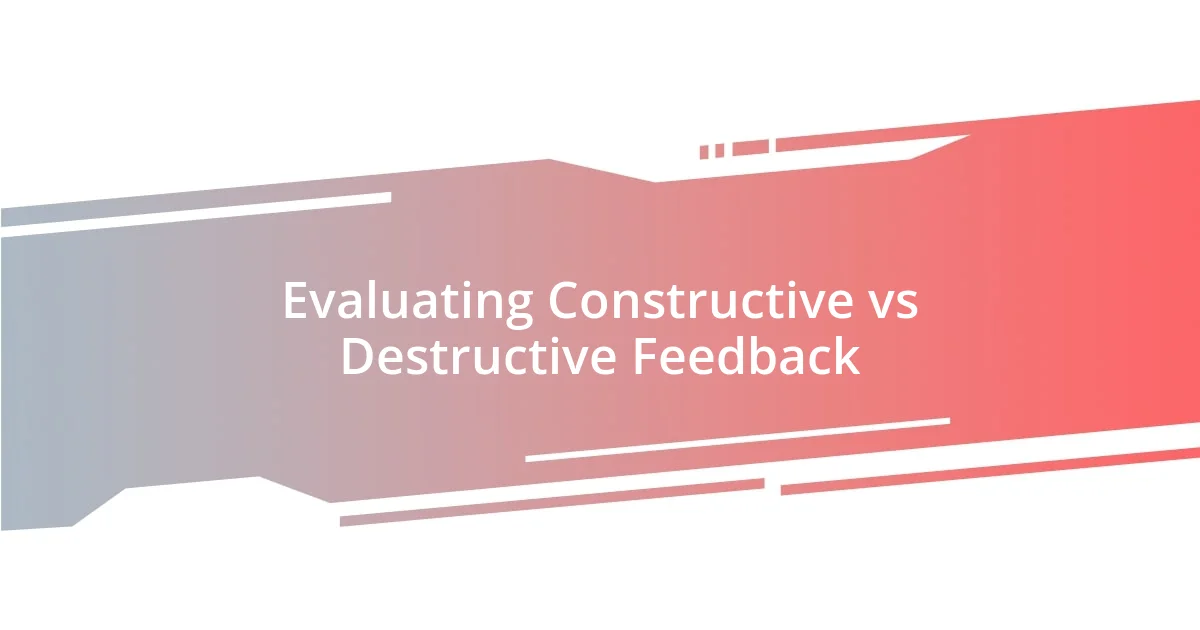
Evaluating Constructive vs Destructive Feedback
Evaluating the difference between constructive and destructive feedback can be quite enlightening. Constructive feedback is typically aimed at helping us grow, often accompanied by suggestions for improvement. I remember a time when I chose a poorly received gift; a friend explained why it didn’t resonate with them, and instead of feeling crushed, I appreciated their honesty. It felt like I received a precious tip that I could utilize in future gift-giving.
On the flip side, destructive feedback often feels like an attack rather than an opportunity for growth. I once received a snide comment about a gift I selected for a colleague, without any guidance on how to improve. Instead of fostering understanding, it left me feeling disheartened and defensive, which didn’t help anyone. It’s a stark reminder that the way feedback is delivered can significantly affect our emotions and willingness to engage.
Evaluating feedback is essential, especially when it comes to improving our gift-giving. By soaking up constructive feedback, I feel empowered to choose gifts that truly reflect the recipient’s interests. Destructive feedback, while tough to swallow, can serve as a motivator to refine my thinking. It’s all about how we choose to perceive and use the insights we receive.
| Constructive Feedback | Destructive Feedback |
|---|---|
| Offers specific suggestions for improvement | Tends to criticize without direction |
| Enhances understanding and encourages growth | Can lead to defensiveness or discouragement |
| Strengthens relationships through open dialogue | Diminishes trust and communication |
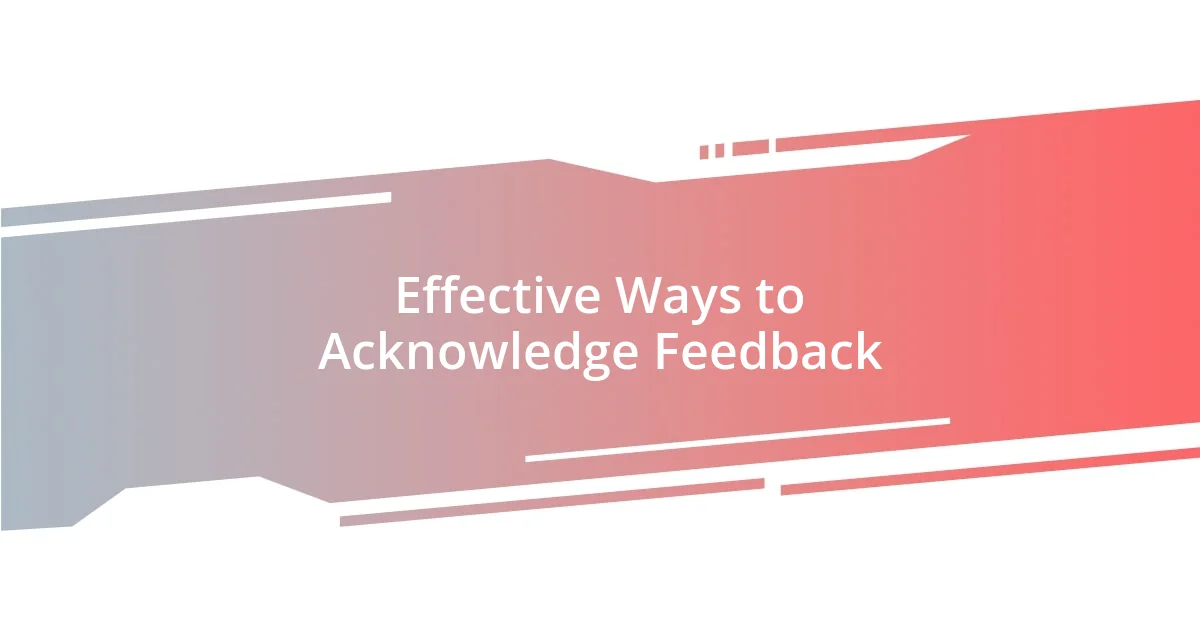
Effective Ways to Acknowledge Feedback
Acknowledging feedback is crucial for my growth and relationships. I’ve learned that simple expressions of gratitude can go a long way. When someone shares their thoughts about a gift I gave, I make it a point to thank them sincerely. This practice not only validates their feelings but also encourages further dialogue about what they truly value.
Here are effective ways I acknowledge feedback:
- Express genuine appreciation: A heartfelt “thank you” can open the door to deeper conversations.
- Ask follow-up questions: This shows I’m invested in their perspective and eager to learn more.
- Share how I’ll apply their feedback: Relating their insights to future gift choices demonstrates that their opinion matters.
- Be open to emotional responses: I allow myself to feel and process the emotions that come with receiving feedback, whether it’s joy or disappointment.
- Create a feedback loop: I invite them to share their thoughts again in the future, fostering a culture of open communication.
By adopting these strategies, I’ve found that feedback becomes not just a tool for improvement, but also a means to connect with others on a more meaningful level.
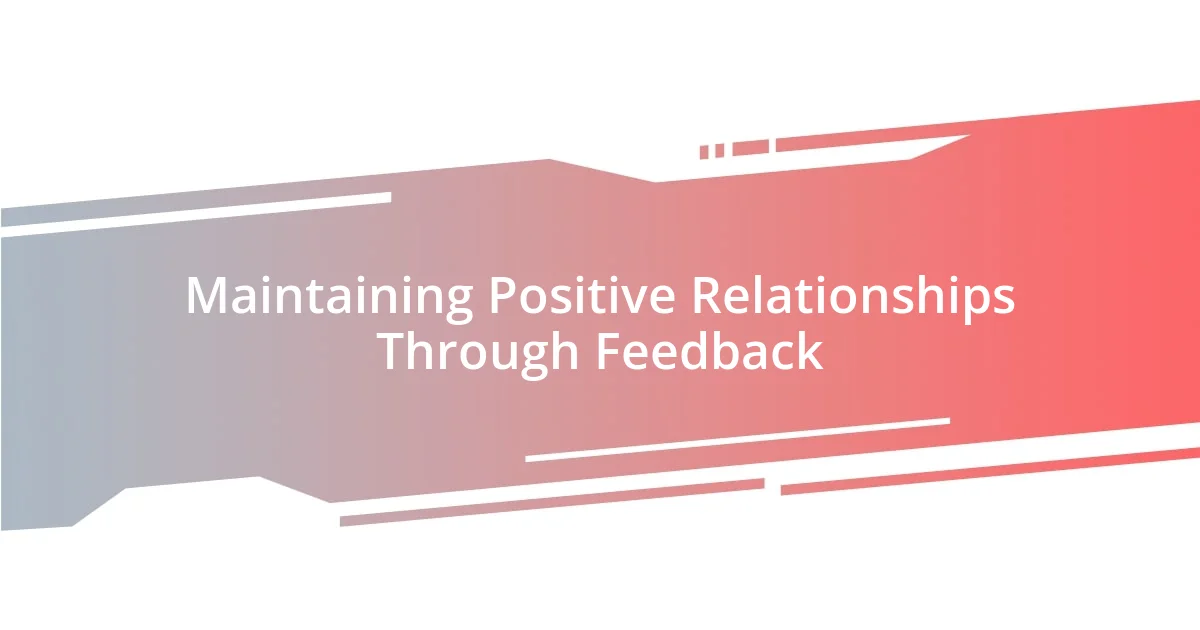
Maintaining Positive Relationships Through Feedback
Maintaining positive relationships through feedback is truly a balancing act. I’ve realized that how I approach receiving and providing feedback can make or break my connections with others. For instance, I once received a candid observation from a friend about why a birthday gift didn’t quite hit the mark. Rather than feeling defensive, I took it as a chance to understand their preferences better. This exchange not only deepened our friendship but made me think about the importance of listening actively and responding with empathy.
When I engage in giving feedback, I always try to frame it positively. I recall a time when I gently suggested to a family member why their gift selection felt off. By focusing on the intention behind their choice and sharing my personal taste, I was able to keep the conversation lighthearted and constructive. Ask yourself: How do you want the other person to feel after your feedback? I find that kindness and clarity are key to ensuring that our relationships thrive, even when discussing sensitive topics.
Moreover, I believe in creating a culture of openness when it comes to gifting. By inviting my friends and family to share their honest thoughts, I strengthen our bond. There are times when I’ve solicited feedback on my gift choices, showing that I value their opinions. Approaching feedback as a shared learning experience instead of a potential conflict has led to richer interactions. It’s fulfilling to know that those conversations pave the way for deeper understanding and appreciation in our relationships.



